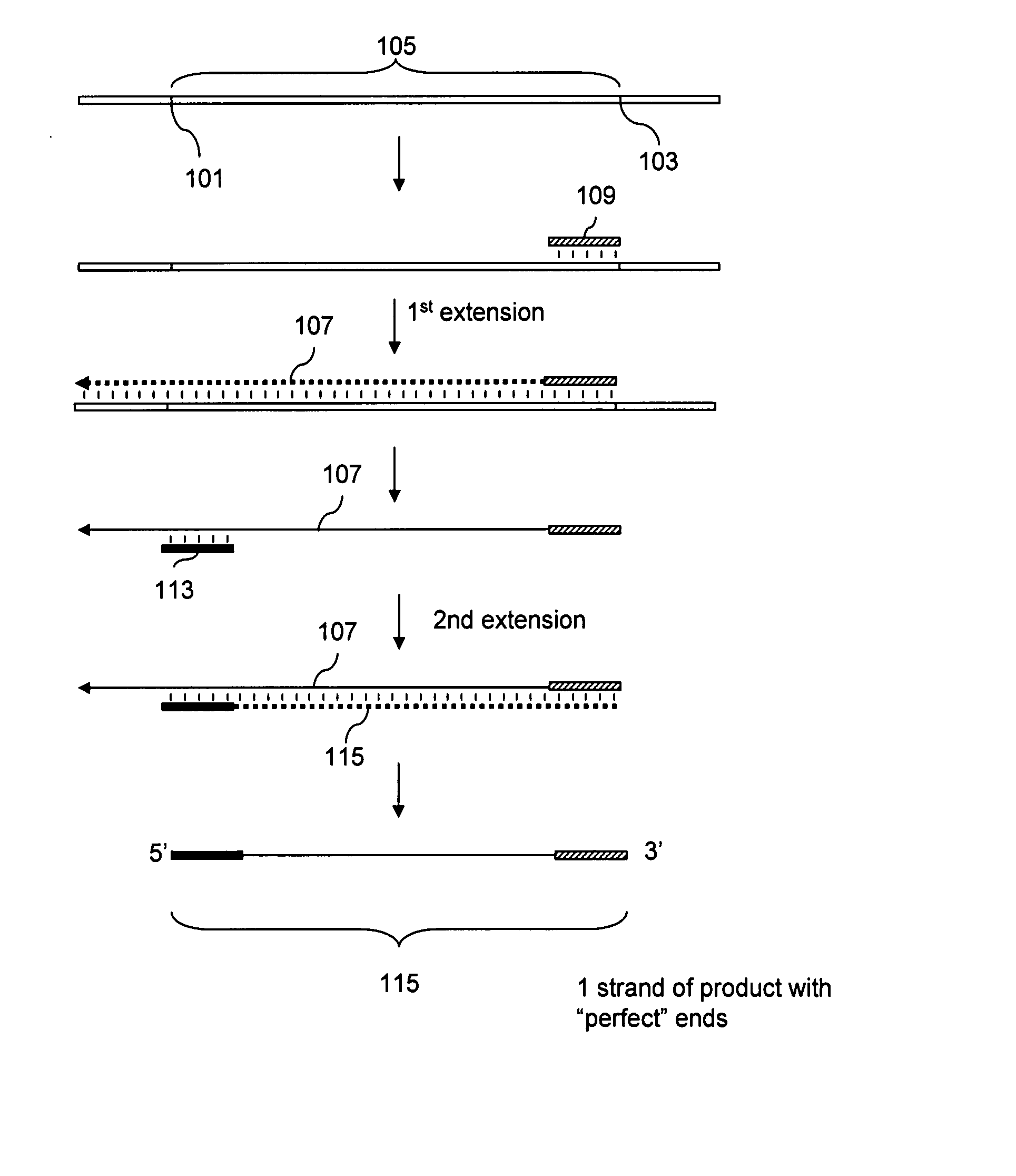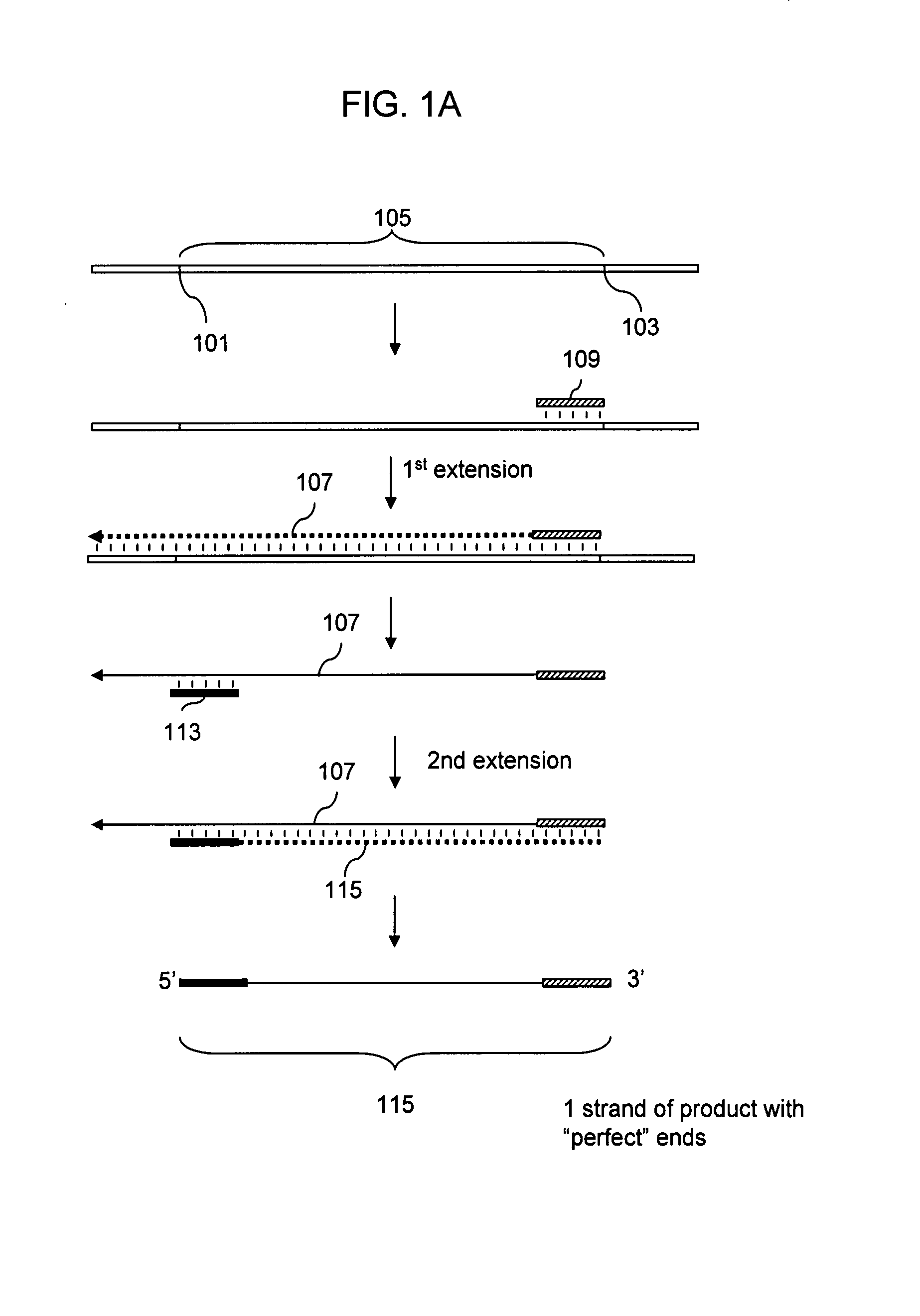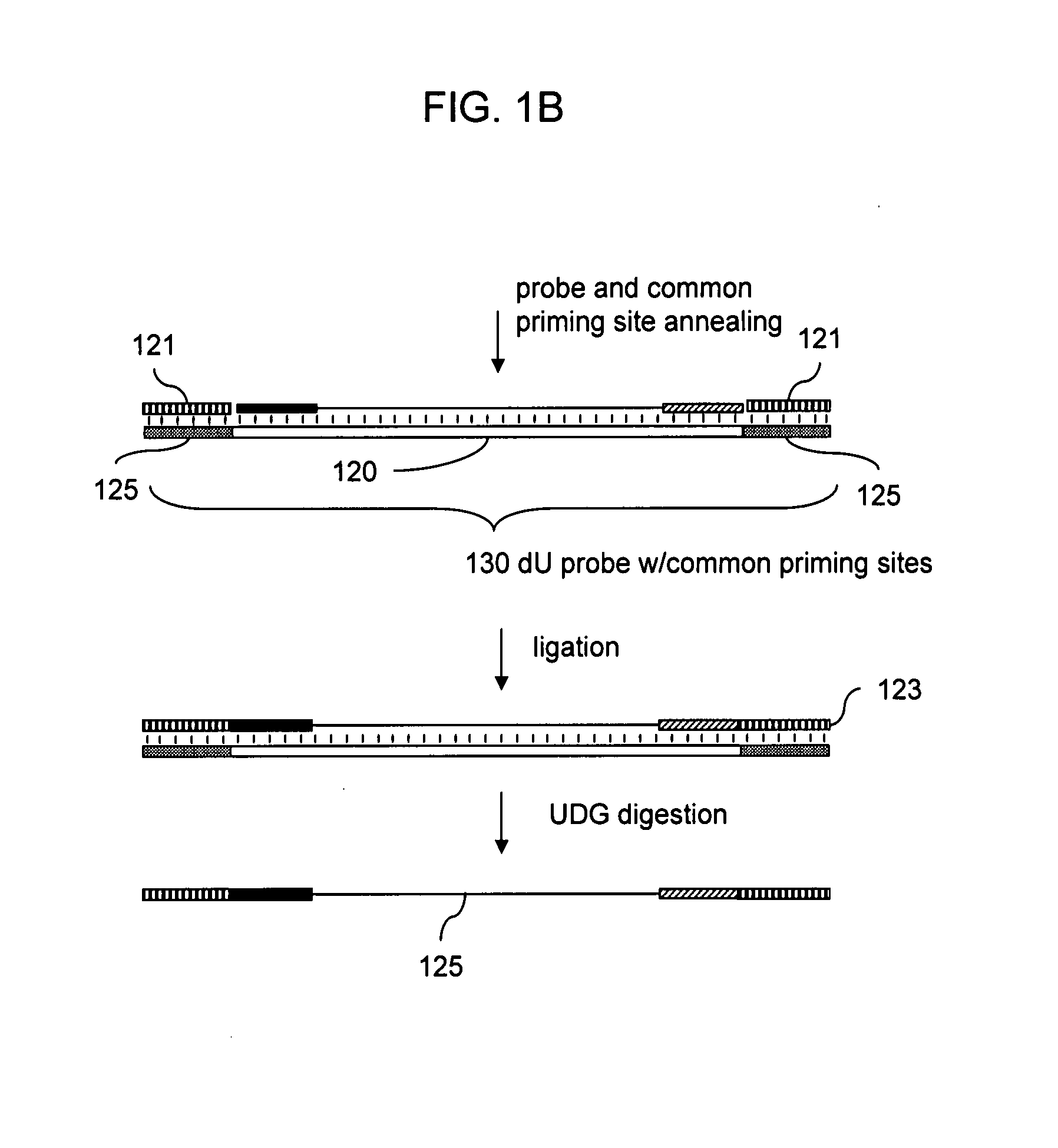Methods of Analysis of Methylation
a methylation and analysis method technology, applied in the field of methods of analysis of methylation, can solve the problems of genomic instability and alterations in the normal methylation process, and achieve the effects of reducing the risk of methylation instability
- Summary
- Abstract
- Description
- Claims
- Application Information
AI Technical Summary
Benefits of technology
Problems solved by technology
Method used
Image
Examples
Embodiment Construction
General
[0034] The present invention has many preferred embodiments and relies on many patents, applications and other references for details known to those of the art. Therefore, when a patent, application, or other reference is cited or repeated below, it should be understood that it is incorporated by reference in its entirety for all purposes as well as for the proposition that is recited.
[0035] As used in this application, the singular form “a,”“an,” and “the” include plural references unless the context clearly dictates otherwise. For example, the term “an agent” includes a plurality of agents, including mixtures thereof.
[0036] An individual is not limited to a human being, but may also include other organisms including but not limited to mammals, plants, fungi, bacteria or cells derived from any of the above.
[0037] Throughout this disclosure, various aspects of this invention can be presented in a range format. It should be understood that the description in range format ...
PUM
| Property | Measurement | Unit |
|---|---|---|
| pH | aaaaa | aaaaa |
| pH | aaaaa | aaaaa |
| pH | aaaaa | aaaaa |
Abstract
Description
Claims
Application Information
 Login to View More
Login to View More - R&D
- Intellectual Property
- Life Sciences
- Materials
- Tech Scout
- Unparalleled Data Quality
- Higher Quality Content
- 60% Fewer Hallucinations
Browse by: Latest US Patents, China's latest patents, Technical Efficacy Thesaurus, Application Domain, Technology Topic, Popular Technical Reports.
© 2025 PatSnap. All rights reserved.Legal|Privacy policy|Modern Slavery Act Transparency Statement|Sitemap|About US| Contact US: help@patsnap.com



